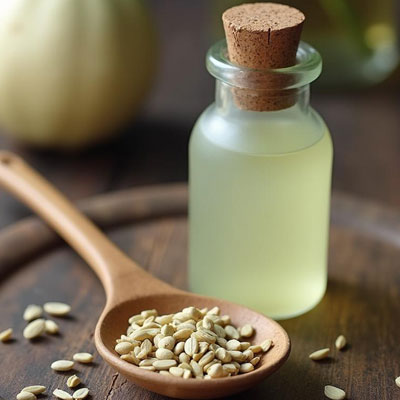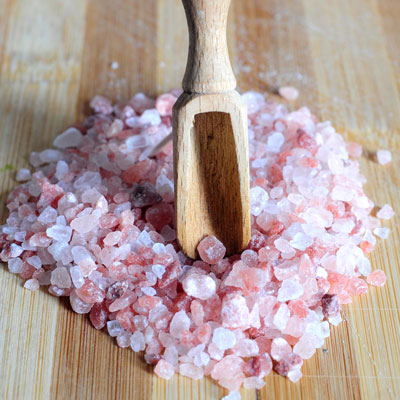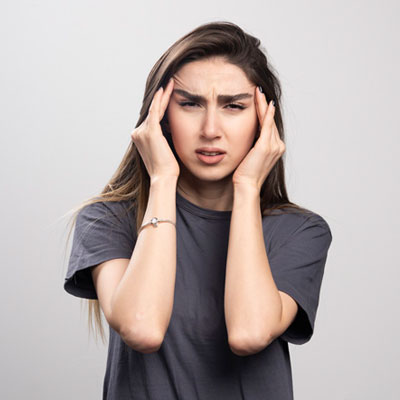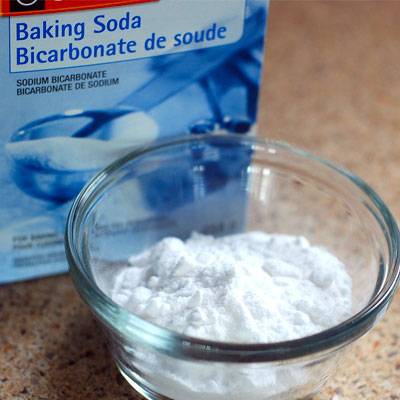Some interesting facts about Caffeine
- Caffeine remains in the body for up to 12 hours. It gets absorbed in the tissues and blood within 45 minutes after getting consumed.
- No doubt, it rarely happens, but too much caffeine can also result in death. The high dose of caffeine can lead to caffeine toxicity, leading to sweating, racing heart, muscle tremors, seizures, respiratory collapse, etc., resulting in death.
- 96% of the total caffeine consumed is through soft drinks, tea, and coffee.
- Energy drinks like Monster and Red Bull contain quite less caffeine compared to coffee as they are filled with sugar and chemicals.
- Caffeine is among a social drug that is widely taken for improving concentration and mood as well as increasing the lifespan too.
- A high dose of caffeine can also result in sleeplessness, psychosis, anxiety, coma, convulsions, vomiting, and lastly, death.
- After having caffeine, your brain takes around 20 minutes to feel the effects of its intake.
- The intake of caffeine is capable of increasing the ability of performing to around 3% for an athlete.
Caffeine: A Psychoactive Ingredient
Surprised with the title? However, it is true. Caffeine is nothing but a psychoactive element that occurs naturally in various energy drinks, yet coffee ranks at the top of the list.
Whether you are in a rush to the office with a cup of creamy latte, want to wake up late for work, or simply want a boost for your lazy morning, coffee has been the primary choice to keep you alert as well as improve focus. However, apart from this, caffeine has remained popular for the negative impacts on anxiety and sleep. But you know what the good news is? There are plenty of other health benefits of having coffee or caffeine. Yet, the quantity should be limited or moderate, as the excess of anything is surely harmful.
So, with this piece of information, let’s analyze the benefits and risks of having caffeine to determine whether you should have it or not.
Health Benefits of Caffeine
Let’s first check on the benefits of having caffeine, apart from saving a good amount for yourself.
1. Caffeine Improves the function of the brain and mood
Caffeine comes with the ability to block the signals sent to the brain by the molecule adenosine. Due to caffeine, an increase in the signaling molecules is observed, which changes the messaging system to the brain. This benefits in boosting the mood of the individual as well as improving the functions of the brain. Again, as per a study, having around 2 to 3 cups of caffeine helps in reducing the chances of suicidal thoughts to around 45%. The people having caffeine are also at 13% fewer chances of having depression. However, when it comes to improving the mood, one must also mark that too much caffeine can also be harmful, resulting in brain issues like Parkinson’s disease and Alzheimer’s disease. Therefore, it’s crucial to monitor the amount of caffeine you consume to achieve the desired effects.
2. Caffeine is Good for metabolism and weight loss
Are you looking for some weight loss? Surprisingly, caffeine can help you out for the same too. Caffeine comes with the ability of stimulating the central nervous system, which boosts metabolism in the body to up to 11%. It also burns fats to around 13%. Hence, caffeine boosts metabolism, which is a good way to lose weight, or, say, lose fat. However, similar to reaping other health benefits, a particular quantity is surely helpful for obtaining the correct weight-loss benefits from caffeine. According to a survey, consuming around 300 mg of caffeine per day would be helpful in boosting your metabolism and burning around 79 additional calories every day.
3. It Augments your performance during exercises
Did you know caffeine works as fuel for improving your performance while exercising? Yes, this is a fact. Caffeine helps the glucose that is stowed in the muscles or body last for a long time period. This delays the time of the muscles in reaching exhaustion. Caffeine is also helpful in improving the contractions of the muscles as well as boosting the lenience to fatigue. As per research, having a dosage of around 2.3 mg/lb of the weight of the body improves the performance while exercising to around 5% if consumed an hour before exercising. This not only helps in a proper and intense workout but also makes the workout easier.
4. It Helps To prevent Type 2 Diabetes and Heart Issues
As per particular research, caffeine helps in reducing the risk of developing heart issues. Having around 1 to 4 cups of caffeine or coffee every day reduces the chances of having heart diseases to around 16 to 18%. Also, having 2 to 4 cups of green tea or coffee would prevent you from having a stroke by around 14 to 20%. However, while obtaining the benefits of caffeine for heart issues, one should also keep in mind that caffeine can increase the blood pressure levels, so make sure you know the intake limits. Another study reveals that caffeine is also helpful in the protection against having type 2 diabetes. The interesting part is that the people who are consuming decaffeinated coffee also benefit from 21% reduced chances of suffering from diabetes.
Apart from all these, other benefits on the list include the protection of the liver from any damage, reducing the chances of premature death, reduces the progression of any diseases, reducing the chances of developing liver cancer, skin cancer, colorectal cancer, etc., reducing the chances of suffering from multiple sclerosis, preventing gout, and supporting good gut health. Hence, caffeine comes with various health benefits if consumed in moderate quantity.
What are the side effects of caffeine?
Just as there are particular benefits of having caffeine, there are some side effects it also contains, which can surely be disturbing for your health. Here are the possible side effects of having caffeine.
- Having more than around 4 cups of caffeine or coffee can also lead to the death of the individual.
- People who consume more than 6 cups of coffee or caffeine every day are at high risk of suffering from heart diseases.
- Too much caffeine consumption can also result in an increase in blood pressure levels. This is particularly disturbing if the patient is already having hypertension.
- If you are suffering from even mild hypertension and are consuming an excess of caffeine, the chances of having a heart attack increase three times.
- Too much caffeine can also result in the risk of suffering from gout attacks.
- Women who have a heavy intake of caffeine or coffee are more likely to develop fibrocystic breast disease and develop breast tissue cysts.
- Also, when women are on heavy consumption of caffeine, they can suffer from self-gratification or are 70% more likely to suffer from it.
- Caffeine or coffee can also lead to insomnia or the symptoms related to insomnia.
- Caffeinated beverages like coffee can also increase the chances of indigestion or upset stomach, particularly if it’s consumed with an empty stomach.
- The overdose of caffeine or coffee can also lead to symptoms related to headaches, headaches, and even migraines.
- As per a study carried out at the University of Nevada School of Medicine, women who consume caffeine in high quantity suffer from 27% reduced chances of conceiving or getting pregnant as it reduces the fertility.
- Women who are consuming more than 2 caffeinated beverages around weeks before conception are more likely to suffer from miscarriage.
- The overdose of caffeine can also lead to death, particularly for people with low tolerance capacity.
- People who are suffering from caffeine allergies can also suffer from pain and hives as a reaction to caffeine.
- The consumption of caffeine or even coffee can increase forceful heart retreatments.
- Caffeine, when consumed in high dosages, can also worsen the symptoms of menopause.
- The consumption of coffee or any other caffeine products can increase the chances of suffering from depression and anxiety to a great extent, such that you need anxiety medications.
- The heavy intake of caffeine increases the production of collagen in the skin.
- Caffeine also increases the chances of developing bone fractures, hearing defects, as well as fake security sense.
Hence, just as there are benefits of caffeine, there is a list of side effects too that need to be considered before having caffeine. It not only hinders the balanced hormones and brain chemistry but also results in various health issues that range from mild to serious.
So, what is the best way to add caffeine to your routine? The answer to this is to have a moderate quantity of caffeine.
What is the right or moderate caffeine intake for a day?
The answer to this question basically depends on your health status at present. However, as per a study, having around 400 miligrams of caffeine or even less every day is considered to be healthy. Here are some sources of caffeine with their intake limits.
1. Soda
The intake of soda roughly should be around 20 to 50 mg only. Again, the sodas and pops that are caffeine-free are totally free from caffeine and beneficial compared to the ones that come with caffeine in them.
2. Coffee
On a safe side, having around 50 to 500 mg of caffeine through normal coffee, black coffee, or even specialized coffee is helpful, yet the intake of ounces also matters. However, if you are looking for limiting the intake of caffeine, decaf is the best option to go with.
3. Tea
Tea comes with a relatively reduced amount of caffeine compared to coffee. Having one cup of tea contains around 5 to 50 mg of caffeine, which is quite moderate.
4. Energy Drinks
Energy drinks contain higher levels of caffeine compared to other caffeine drinks. Having around 1 to 8 ounces of caffeinated energy drink can provide you with around 25 to 125mg of caffeine, which is surely harmful. Hence, compared to other caffeinated drinks, energy drinks are surely dangerous.
Therefore, it is crucial for consumers to monitor the quantity and amount of caffeine they consume. Along with this, the women who are looking forward to conceiving or who are already pregnant and breastfeeding need to avoid caffeine. The intake of caffeine can also increase the chances of infertility and miscarriage. Also, people who are prone to various psychiatric conditions and anxiety should avoid caffeine, as it can result in hostility, anxiousness, and irritability. People suffering from digestive issues like acid reflux, diabetes, or gout should avoid caffeine. Similarly, people who are on particular medications like antidepressants, asthma medicines, and antibacterial drugs should avoid having drinks that contain caffeine.
Conclusion
If you are an adult, there are high chances of having the addiction to caffeine drinks. Many people rely on a cup of tea or coffee to start their day without any food. Similarly, there are people who consume coffee or other caffeine drinks to remain awake late nights to meet their goals, particularly the students or employees working night shifts. No doubt, caffeine wouldn’t instantly appear with its side effects; there are still chances of suffering from its adverse effects in the long term.
Having moderate consumption of caffeine is beneficial to avoid the harmful side effects, yet its reaction mostly depends on various factors that are genetic as well as the lifestyle choices that are individually different.
Caffeine is henceforth one of the undeniable parts of nearly everyone’s life, yet limiting with moderate quantity is much helpful for a healthy life along with other activities like exercises, a balanced diet, having a healthy weight, etc.
So, are you keeping a watch on your caffeine intake? Better start with it for securing maximum health benefits while you enjoy your caffeine addiction.


















